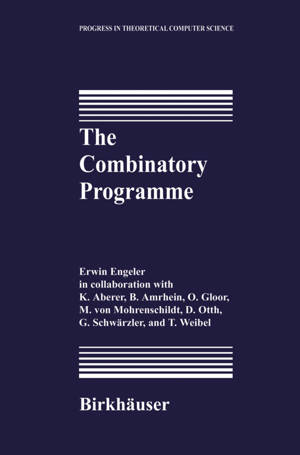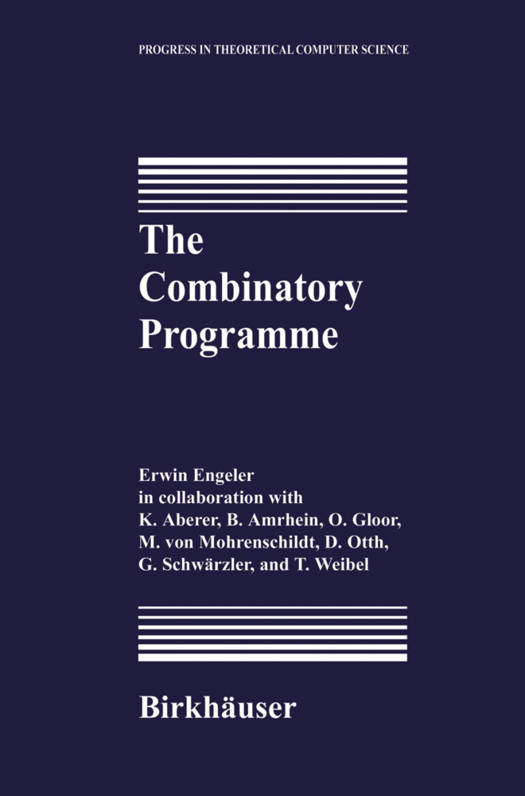
- Retrait gratuit dans votre magasin Club
- 7.000.000 titres dans notre catalogue
- Payer en toute sécurité
- Toujours un magasin près de chez vous
- Retrait gratuit dans votre magasin Club
- 7.000.000 titres dans notre catalogue
- Payer en toute sécurité
- Toujours un magasin près de chez vous
Description
Combinatory logic started as a programme in the foundation of mathematics and in an historical context at a time when such endeavours attracted the most gifted among the mathematicians. This small volume arose under quite differ- ent circumstances, namely within the context of reworking the mathematical foundations of computer science. I have been very lucky in finding gifted students who agreed to work with me and chose, for their Ph. D. theses, subjects that arose from my own attempts 1 to create a coherent mathematical view of these foundations. The result of this collaborative work is presented here in the hope that it does justice to the individual contributor and that the reader has a chance of judging the work as a whole. E. Engeler ETH Zurich, April 1994 lCollected in Chapter III, An Algebraization of Algorithmics, in Algorithmic Properties of Structures, Selected Papers of Erwin Engeler, World Scientific PubJ. Co., Singapore, 1993, pp. 183-257. I Historical and Philosophical Background Erwin Engeler In the fall of 1928 a young American turned up at the Mathematical Institute of Gottingen, a mecca of mathematicians at the time; he was a young man with a dream and his name was H. B. Curry. He felt that he had the tools in hand with which to solve the problem of foundations of mathematics mice and for all. His was an approach that came to be called "formalist" and embodied that later became known as Combinatory Logic.
Spécifications
Parties prenantes
- Auteur(s) :
- Editeur:
Contenu
- Nombre de pages :
- 144
- Langue:
- Anglais
- Collection :
Caractéristiques
- EAN:
- 9781461287162
- Date de parution :
- 23-11-11
- Format:
- Livre broché
- Format numérique:
- Trade paperback (VS)
- Dimensions :
- 156 mm x 234 mm
- Poids :
- 226 g







